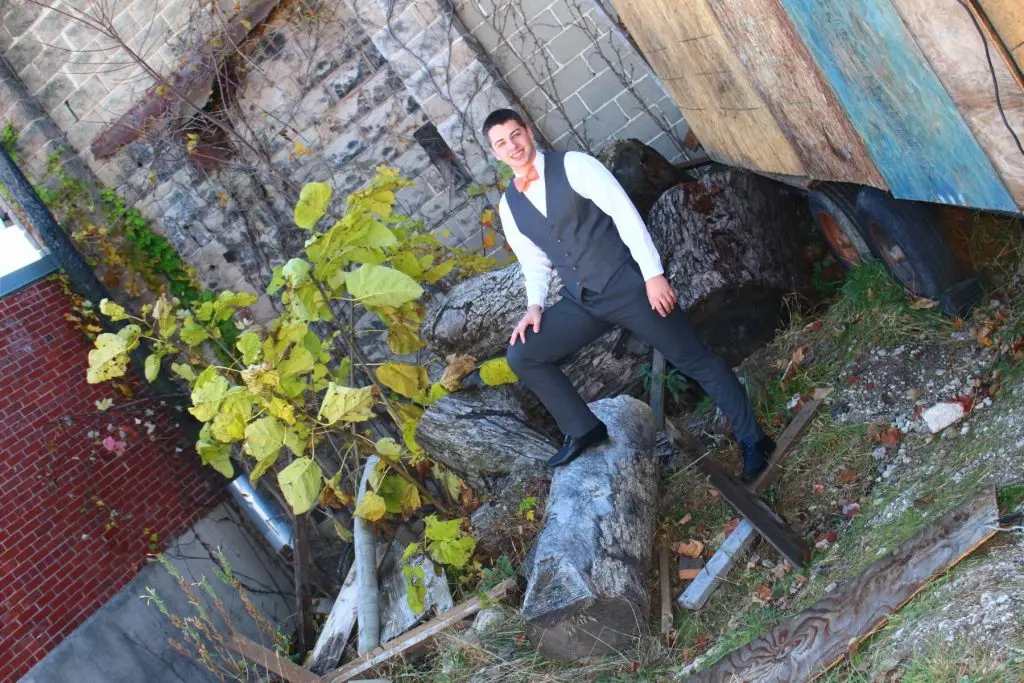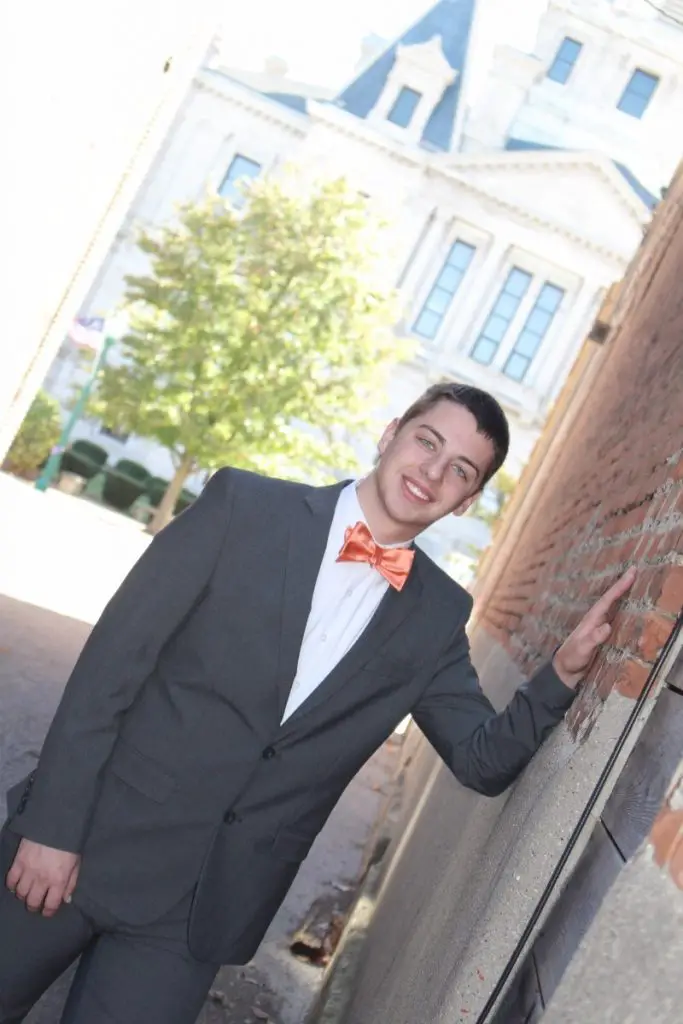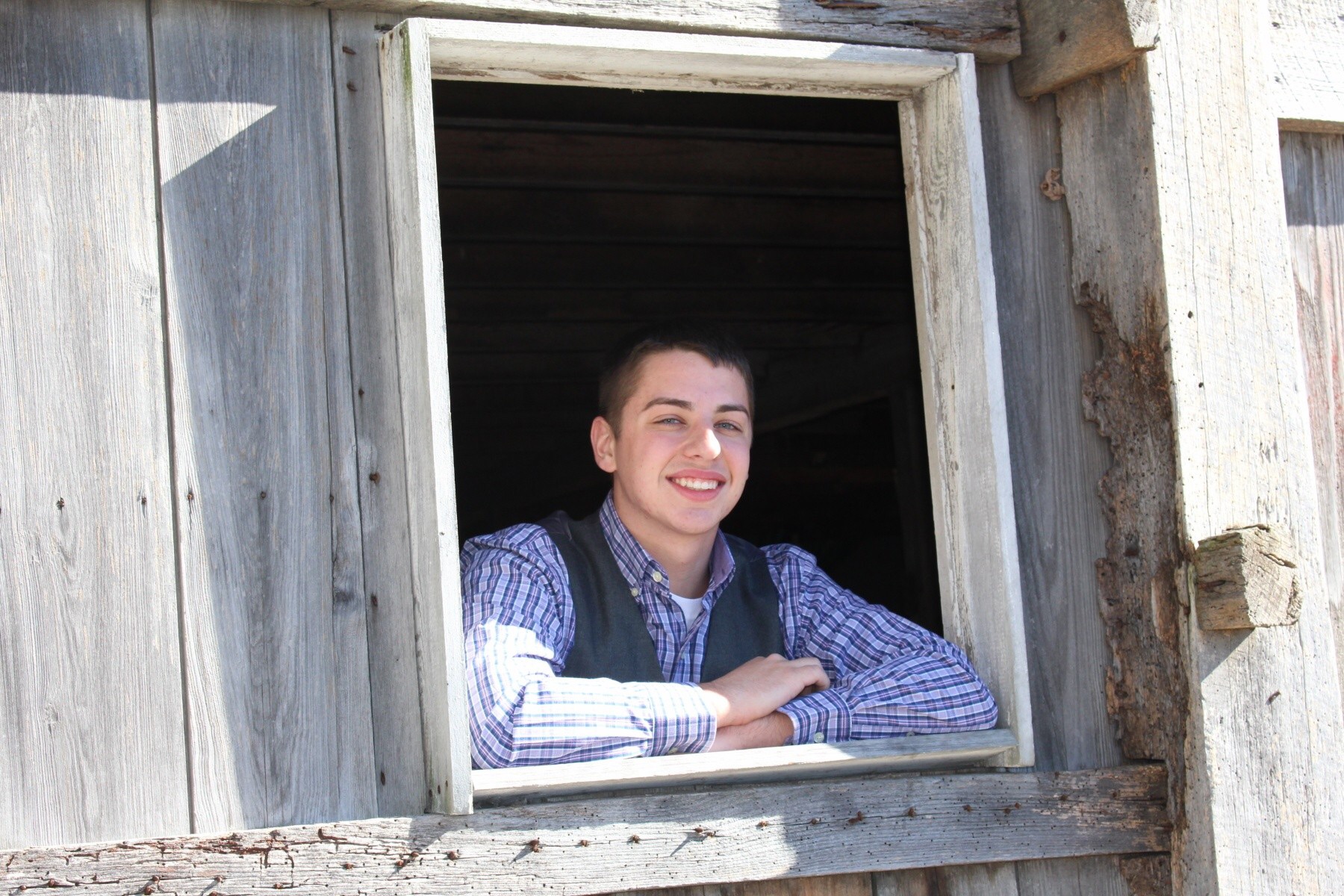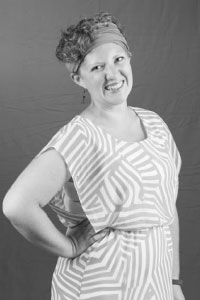Mitchell Scott’s story is one that isn’t often told in the twenty-first century century America.
As a Caucasian male, there is a social assumption that he will innately have an easier road ahead of him than many others. However, even though Scott graduated as co-valedictorian of his high school class with an almost perfect GPA, he was waitlisted for every Ivy League college to which he applied.
Now a first-ever transfer to Cornell from IPFW, a local four-year college, Scott tells about the importance of never giving up, especially when it comes to your future.

Alicia Drier: At some point, we are all led to believe that valedictorians have their futures written for them. How does that ring true or false in your life so far?
Mitchell Scott: I think with my story, in the short term, it appeared that my future didn’t match the title I had earned. People told me I was bound for the Ivy Leagues, but that didn’t happen. I wasn’t “Harvard smart.” I wasn’t “Yale smart.” Both rejected me. And if one were to define a valedictorian in strictly an academic sense and by their college acceptance rate, I was a subpar valedictorian, at best.
However, through my supposed failure, I have learned to never give up. I didn’t like where I was, so I fought like hell to get to where I am now, and I will fight like hell in the future. In the end, any title means nothing beyond the power you give it. The word “valedictorian” itself means nothing more than someone who gives a speech at a graduation ceremony. I chose to define it as the best of the best, someone who sets high standards for life—and achieves them.
AD: Why did you choose to transfer to Cornell? How does it compare to your original college experience at Indiana University Purdue University Fort Wayne (IPFW)?
MS: Honestly, I felt a serious calling to Cornell. I have always wanted to go to school in the state of New York, preferably upstate New York. The second I stepped on Cornell’s campus, I was addicted. I liked the frost on the arts quad that morning. I felt at home. After sitting in on a meeting about the different colleges within the university, I decided to attend the College of Agriculture and Life Sciences’ (CALS) breakout meeting. I felt a calling to Cornell, like it was fate, and I was meant to be here.
At IPFW, I was a big fish in a small pond. I was taking twenty credits, getting a 4.0 all without trying. Professors were reaching out to me to do research with them. For one of my classes, I had to assemble a four-year degree plan, a list of all the classes and when you would take them to graduate. I had it planned out that after four years, I would have a double major in Chemistry and Biology with minors in Mathematical Sciences and Physics.
This was made possible because I took many AP classes in high school, and came into IPFW with thirty-nine college credits already, which gave me sophomore status as a first-semester freshman. Plus, I still lived at home with my parents while at IPFW to save money, which further isolated me from my IPFW classmates physically.
AD: What type of extracurricular opportunities are you taking advantage of at Cornell?
MS: Cornell has over one thousand student organizations, not including different jobs on and off campus like research. I have gotten pretty heavily involved with a few student organizations, and then I am just slightly involved in other groups. I am heavily involved with Alpha Phi Omega (APO), an international service fraternity. As part of the frat, they have requirements in service, fellowship and leadership. It is one of the largest student organization at Cornell, with six hundred students in it. Since it is so populated, I have met so many amazing people in APO. I recently received my fraternity big brother and he is also from Indiana, so I think we are perfect complements of each other.
Another organization that I am involved in is the Cornell International Affairs Society (CIAS). This organization talks about current world issues, does Model United Nation (MUN) competitions and also hosts its own high school and college competition. I am volunteering to help with both of the MUN competitions for both high school students and the college one.
I am also writing for the “Cornell Observer,” where I write on economic issues around the world. I am mildly involved in the math club, Cornell Undergraduate Research Board and a few others. The extracurricular opportunities at a school like Cornell are one of the best things about being a student here.
AD: Where do you hope to go from Cornell?
MS: I am hoping to graduate from Cornell with a double major in Biochemistry and Biological Engineering, hopefully with a competitive GPA. After Cornell, I will either apply to graduate school or a school of mechanical and aerospace engineering (M. Eng). I hope to go to either Harvard for grad school or MIT for M. Eng. I want to get my PhD in biochemistry.
After that, I will hopefully apply to go to Harvard Med and become a medical doctor. As an MD PhD, I plan to work as a neurologist for about ten years, and then my student loans will be paid off. Then I would like to become a professor. In the long run, I want to do medical research combining my two doctorates, and do neurological biochemical research focusing on neurodegenerative disorders.
AD: There are a lot of social stigmas surrounding Ivy League education. How do you feel you connect with or deviate from these stereotypes?
MS: One of the biggest stereotypes about Ivy League students is that many come from families with money. At Cornell, I feel that although income and wealth aren’t really discussed, it’s pretty clear that this is true. I see Louis Vuitton, Burberry and other high-end name brands on a daily basis. My roommate has talked about his summer home in Martha’s Vineyard.

In contrast, my parents are scrimping and saving to send me here. I am the first generation in my family to go out of state for college. Both of my parents were farmers. No one from my high school has ever gone to Cornell, and only a handful of students in the high school’s history have gone to an Ivy League.
Even though I come from a very different background than him, when I look at media portrayals of East Coast education, I have always identified most with Dan Humphrey from “Gossip Girl.” Like him, I’ve often been an outsider in my interests and dreams. Not many people from my school had their eyes on the Ivy League. Many of my competitors from Fort Wayne for the Ivy Leagues came from money, connections and rich academic extracurricular opportunities that my high school didn’t offer. With my family background, I didn’t fit in. I had to turn down Johns Hopkins University, where I was waitlisted and then eventually accepted, because my parents couldn’t afford it.
In the TV show, when Dan Humphrey went to St. Jude’s School for Boys, he was the only person who wasn’t from the Upper East Side of Manhattan. He had to turn down the opportunity to attend Yale because his father couldn’t afford it. But even with these major obstacles, Dan went on to pursue his dream of becoming a writer, just as I will continue to reach for my goals until I have achieved them.
AD: What advice would you give to anyone who aspires to transfer to an Ivy League institution like you?
MS: My first and most crucial advice is to not attempt to transfer into the Ivy League just because of the name of the university. You should try to transfer because of the resources at your institution, the location, the campus feel—at the end of the day, you need to be able to see your happiness there for about three years through the thick and thin.
The second piece of advice is know that there are multiple ways to accomplish your goals. Not everything depends on your acceptance into that elite university. At the end of the day, the most admirable trait is resilience and hard work, not getting into one specific school.
Lastly, if you are lucky enough to receive admittance, just remember that you are surrounded by some of the best minds in the country and also the world. So don’t get down on yourself if you are only the mean or slightly below the mean in your classes. Don’t worry and keep fighting!
Ezra Cornell, the founder of Cornell University, once said, “I will found an institution where any student can receive instruction in any study.” Mitchell Scott is proof of that campus motto, and he strives to prove himself worthy of this opportunity every day. You can find out more about Scott by following him on Facebook, Instagram or Twitter.
Correction: Study Breaks falsely claimed that Mitchell was the first student to transfer to Cornell from a community college. He is not. He is the first student to transfer to Cornell from IPFW, a local four-year college.

















What sort of inane bullshit is this? I personally know two community college transfers. Did you do /any/ research?
I as well as 4 of my friends transferred from community college to Cornell. This is absolute bullshit.
The entire premise of your article is centered on the fact that IPFW or Indiana University, Purdue University–Fort Wayne is a community college. Actually, if you bothered to do any preliminary research or develop a basic understanding of regional metropolitan university structure, you’d recognize that IPFW is a full university, complete with D1 sports and all the necessary elements contained to make it one. You undermine and insult professors, students and leaders who attend these universities across the country. Congrats, really.
yeah – I am also one of two people in my suite to transfer to Cornell from CC. It’s not really unprecedented for someone to go from cc -> ‘elite university’
Also, the whole bit about “4.0 in n credits without trying” just ruined the entire article. Humble!
Pretentious